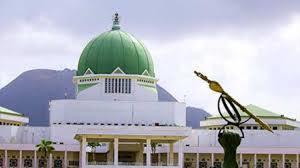
By Milcah Tanimu
The National Assembly (NASS) has assured Nigerians that it will carefully scrutinize the proposed tax reform bills to align with public interests. Despite assurances, the bills have sparked mixed reactions from experts, economists, and stakeholders.
Proposed Bills Overview
President Tinubu submitted four key tax reform bills on September 3, 2024, following recommendations from the Presidential Committee on Fiscal and Tax Reforms led by Taiwo Oyedele.
The bills include:
- Nigeria Tax Bill 2024: Establishes a comprehensive fiscal framework.
- Tax Administration Bill: Defines legal structures for all tax matters.
- Nigeria Revenue Service Establishment Bill: Replaces the Federal Inland Revenue Service Act.
- Joint Revenue Board Establishment Bill: Creates a tax tribunal and ombudsman for accountability.
Stakeholder Opinions
Experts Caution
Economy experts have warned against tax increases, labeling some proposals as overly capitalist and detrimental to economic growth. Dr. Muda Yusuf, CEO of the Center for the Promotion of Private Enterprise (CPPE), emphasized the importance of consultation. He noted that VAT allocation adjustments could fuel regional tensions if not handled carefully.
Support for Derivation-Based VAT Model
Financial analysts argue the derivation-based VAT model aligns with fiscal federalism principles, incentivizing states to enhance their revenue bases. However, others caution that disparities in state resources may lead to economic imbalances.
Manufacturers’ Perspective
The Manufacturers Association of Nigeria (MAN) lauded the proposed reforms as transformative. Director-General Segun Ajayi-Kadir highlighted the reduction of over 60 taxes to fewer than 10, alongside the introduction of a tax ombudsman to ensure equity and accountability.
Social Concerns
Michael Ale, a development expert, criticized the reforms as potentially deepening poverty. He advocated for progressive taxation and warned against trickle-down effects that burden citizens.
Key Highlights:
- Reduction of federal VAT share from 15% to 10%, with states’ share increasing to 55%.
- Aiming to harmonize tax systems and improve administration.
- Proposals for progressive tax structures to mitigate inequality.
NASS’s Commitment
Deputy Speaker of the House of Representatives, Rt. Hon. Benjamin Kalu, reassured stakeholders that the National Assembly will prioritize public welfare in its review process.
As debates continue, balancing fiscal efficiency with economic equity remains central to the discourse on these pivotal tax reform bills.
Leave a Reply